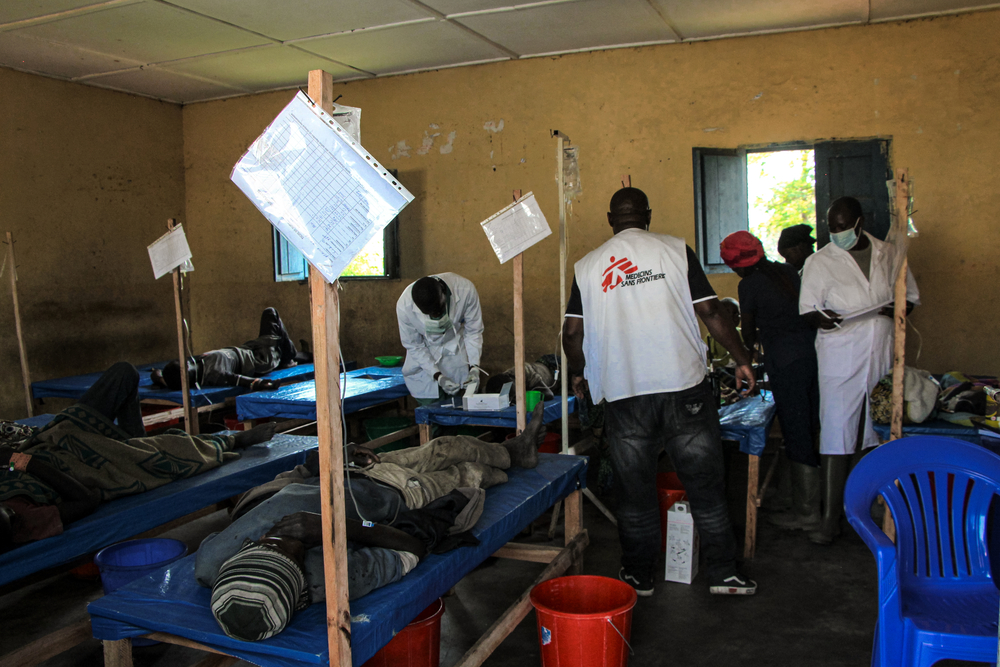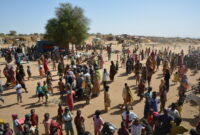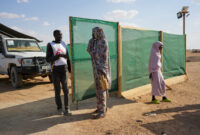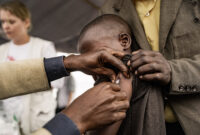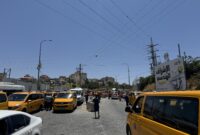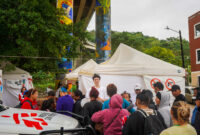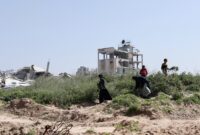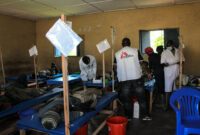DRC: Emergency response against cholera in the territory of Rutshuru
Doctors Without Borders/Médecins Sans Frontières (MSF) teams have been mobilised urgently in the territory of Rutshuru, in the East of the Democratic Republic of Congo (DRC), in response to an outbreak of suspected cases of cholera, particularly in the Binza and Rutshuru health zones. More than 1,500 patients have been treated since the beginning of June 2023.
In the first line of the medical response, MSF teams had to deploy substantial medical and logistical resources in just two days.
“At first, health facilities were overwhelmed by the massive influx of patients. With limited capacity, some days we had to treat more than 100 patients at the same time with just 20 beds. To prevent further contamination and reduce the spread of the disease, the teams set up 4 cholera treatment centres, as well as oral rehydration and water chlorination points for people living far away from the health centres. In just three days, nearly 400 cases were treated by the teams in the Rutshuru and Binza health zones, in support to the health authorities”, explains Romain Madjissembaye, MSF project coordinator.
Most patients come from a long way and travel dozens of kilometres through the bush to reach medical facilities. Some are already unconscious when arriving, in shock, and the medical teams have only a few hours, or even minutes, to save them. Through community-based prevention measures and increased medical support, the situation is under control and the admission rate is declining. New patients continue to arrive, and our teams remain mobilised daily to treat them.
On site, our teams have gathered positive testimonies from cured patients – illustrating the speedy recovery of this highly contagious disease, when utmost care is deployed.
For months, MSF has been the only medical actor present in the territory of Rutshuru, supporting 24 medical structures in the Rutshuru, Rwanguba, Binza, Bambo and Kibirizi health zones.
“I thought it was malaria, so I didn’t worry”
Dieu-est-Bon, patient
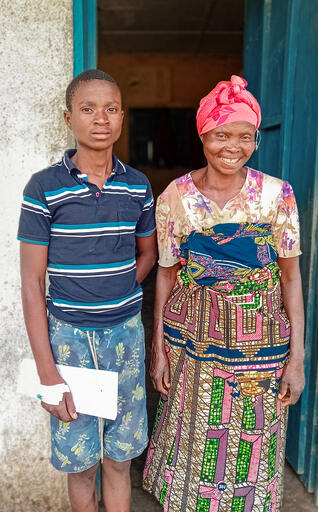
Two days after carrying a sick person on his bike to the nearest health centre – in Kiseguru –, about fifteen kilometres from his village, Dieu-est-Bon started to feel tired.
“I thought it was malaria, so I didn’t worry” he says. “Then I started having severe diarrhoea and vomiting, which made me realize that it might be the same thing than the patient I had accompanied. But by then, I became too weak to move”.
Two people carried him during the 4-hour walk to the treatment centre set up by MSF teams for suspected cases of cholera, in support of the health authorities. After 2 days of treatment, Dieu-est-bon is feeling better and ready to go with his mother, who came to pick him up. Dieu-est-bon is 16 years old. He had to stop his studies because schools have closed nearly a year ago due to the volatile situation in the region. So, in the meantime, he helps his parents farming in the fields. He dreams of becoming a mechanic in the future.
“I was really scared as I nearly died”
Jean, patient
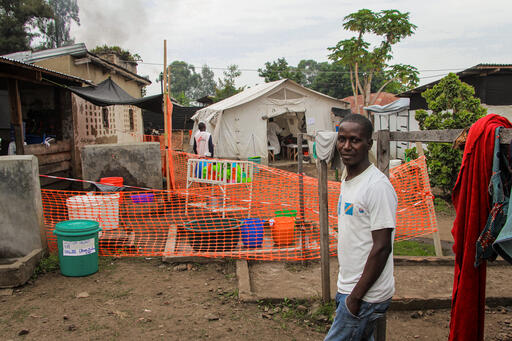
Jean, 31, can’t remember how he arrived to the hospital.
“When I woke up lying in the treatment centre, I didn’t know where I was or what had happened to me. I remember that I was working in the fields and that I was suffering from stomach pains, with diarrhoea and vomiting. Then I fainted” he recalls. “I was told that someone I didn’t know had brought me here by motorbike to get treatment”.
Jean is a maize farmer. In the past, he has already been treated in an hospital but has never experienced something like this: “I was really scared. I nearly died, but fortunately today I’m healed, and I’ll be able to see my wife and my two children again” he confides. Jean was taken into care for 5 days at the treatment centre set up in Rutshuru by MSF teams for suspected cases of cholera.
“I was very worried and afraid because he was no longer moving “
Tushime, mother of Djafette, patient
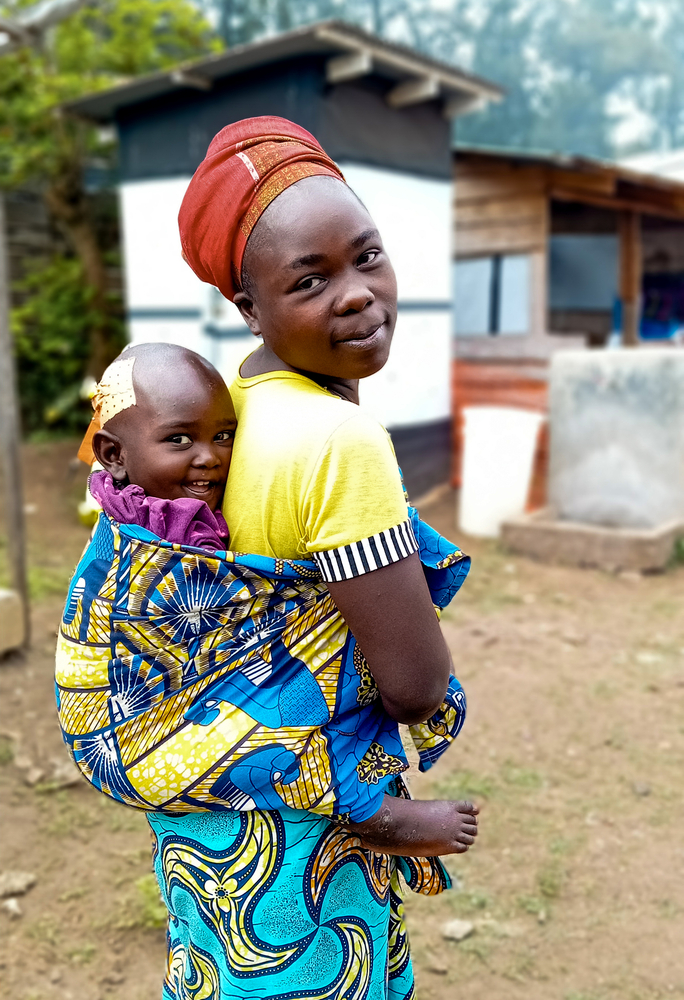
Tushime, 25, feared for the life of her son Djafette, 2 and a half years old. She explained how she came to the treatment centre for suspected cases of cholera in Rutshuru, set up by MSF teams in collaboration with the Ministry of Health.
“He was suffering from severe diarrhoea and fainted. Hence, I rushed to get a motorbike. The whole way to here, which took three hours, I was very worried and afraid because he was no longer moving. I’ve never seen him so ill” she recounts with emotion, while her son is now playing peacefully.
A catheter was placed in Djafette’s skull, a medical device enabling patients to be rehydrated. This is normally placed on the arms, but when not accessible, it is the last medical resort. Djafette was in a state of shock when he was taken in by the medical teams. Djafette was in shock when he arrived in the hands of the medical teams.
Tushime, fell ill after her son, and was cared for at the same time as he did. “Not everyone has this opportunity: on the way here, I’ve seen people who have died, like a mother whose son is being treated here”. After 6 days at the treatment centre, Tushime returned home with her son and will be reunited with her husband and her two other children.
Jimmy, patient“I don’t remember anything except that I was very sick with diarrhoea and vomiting.”
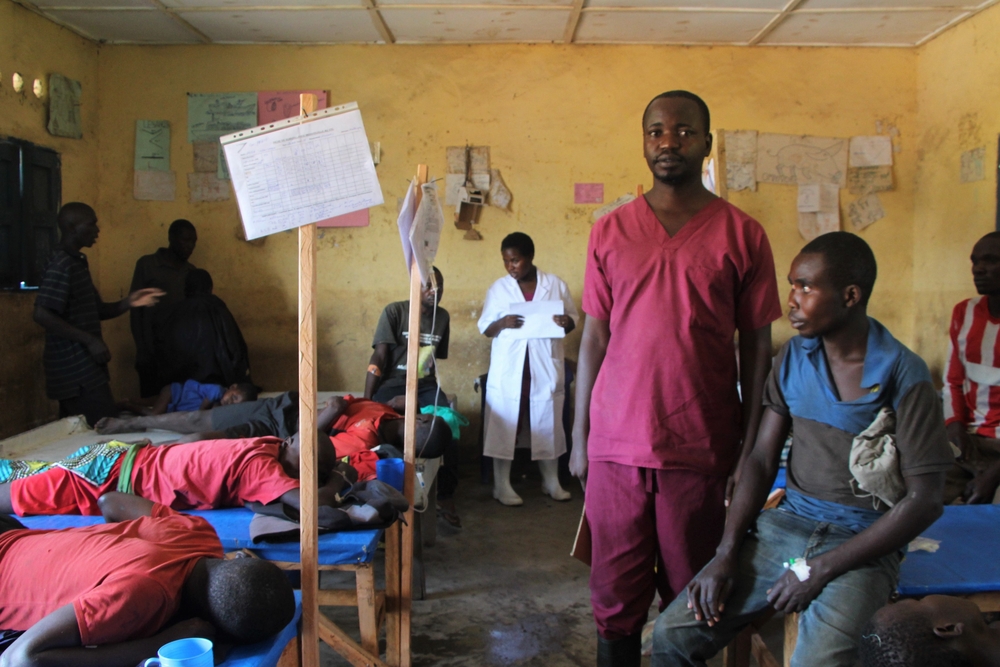
Jimmy, 31 years old, arrived in shock at the treatment centre for suspected cholera cases in Kiseguru, set up by MSF teams in support of the health authorities.
“My brother told me that I fell on the ground and that the neighbours brought me here. I don’t remember anything except that I was very sick with diarrhoea and vomiting”.
Jimmy is a farmer, he grows corn, sorghum, cassava, and yams. His field is only a few kilometres from the health centre, but he is originally from Mweso, where his family live, around a hundred kilometres from here.
His wife and two children don’t know that Jimmy has fallen seriously ill. The only thing that matters to him now is going back to them: “No matter how long it takes, I want to get home to my family and get some rest,” Jimmy tells us in a determined voice. Jimmy wanted to take the photo next to Dr Laurent, who is part of the medical team that saved his life. “This disease is so serious, people need to know that they have to rush to hospital,” explains Jimmy.
“We were overwhelmed, with 3 or 4 patients per bed.’
Denis Mudake, MSF nurse
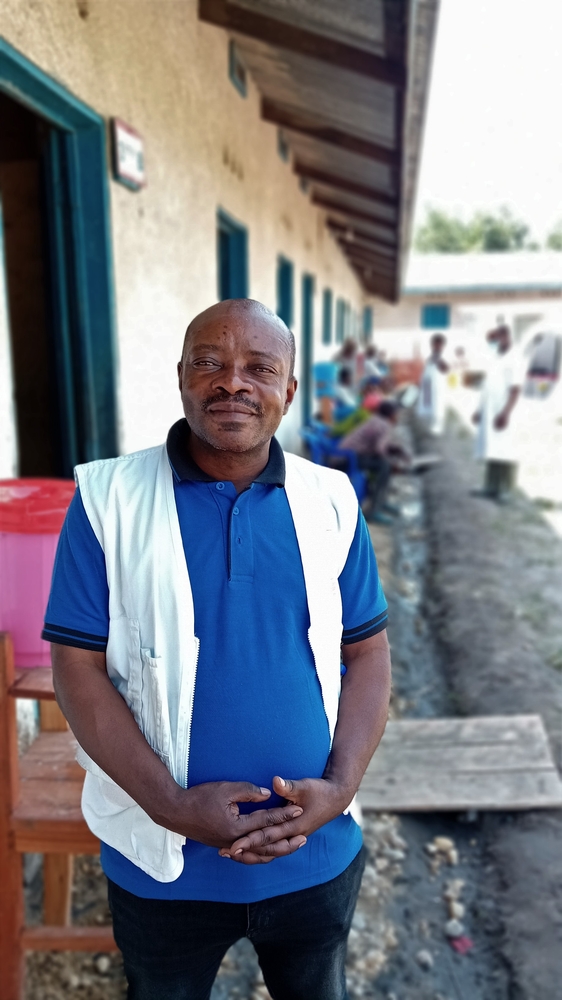
Denis Mudake is an MSF nurse supervisor at the Kiseguru health centre in the Binza health zone in Rutshuru, where MSF has set up a special treatment centre to deal with an outbreak of cholera-like acute diarrhoea, in collaboration with the health authorities.
Denis was part of the medical team that treated the first cases at the beginning of June. Since then, more than 500 patients have been treated in this centre.
“First few days were not easy. We were short of space and cholera beds to cope with the influx of patients. We were overwhelmed, with 3 or 4 patients per bed. We subsequently sent more materials and set up a specific processing centre. It’s a huge logistical task to set this up in just a few days”.
“We have involved the community in raising awareness and have set up water chlorination and oral rehydration points to get closer to the patients, who come from far away and in a critical state of health”. Denis has been working for MSF for almost 9 years in different projects. Despite the fatigue, he remains determined and motivated.
